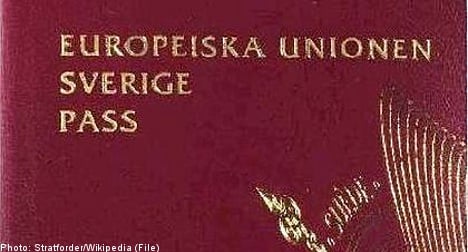Currently, Swedish citizens can’t be extradited to states outside the EU.
The inquiry’s findings, submitted to the government on Tuesday, propose two overarching changes to Sweden’s current extradition law, which dates back to 1957.
One change proposed by the inquiry, which was led by judge and United Nations Human Rights Committee representative Krister Thelin, is to soften the current prohibition against extraditing people who hold Swedish citizenship.
“The proposal, in the eyes of the inquiry, is better suited to the increased internationalization and to, among other things, the fact that in our country there are a large number of citizens, at least a half million by many estimates, who have also chosen to be citizens in another country or have strong ties there,” Thelin, wrote in an opinion article published in the Dagens Nyheter (DN) newspaper.
Specifically, the inquiry wants to make it easier to extradite Swedish citizens to states outside the EU if they are citizens of another country, have lived in the requesting country at least five years, or if the crime they are accused of committing is serious enough that it would carry a sentence of at least four years in prison if if were committed in Sweden.
The second major change put forward by the inquiry is move responsibility for extradition decisions to regular courts and away from the government and the Supreme Court.
Currently, extradition requests are first reviewed by the Supreme Court. If the court rejects the request, the government must abide by the ruling.
However, if the Supreme Court approves the request, the government nevertheless has the discretion to ignore the court’s findings due to foreign and security policy considerations.
According to the proposed changes, however, the government would instead be able to voice any foreign and security policy concerns associated with an extradition request though prosecutors handling the case.
“The current discretionary political emphasis in the decision process would be replaced by a clear legal hearing,” wrote Thelin.
According to Thelin, Sweden receives at the most 20 extradition requests per year, most often coming from European countries outside the EU, as well as Turkey, Russia and other states in the former Soviet Union.
Extradition from Sweden, unlike many other countries, isn’t dependent on the existence of an extradition agreement between Sweden and the requesting country, although such bilateral agreements can make the process easier.
Currently, Sweden has extradition treaties with Australia, Canada, and the United States.


 Please whitelist us to continue reading.
Please whitelist us to continue reading.
Member comments